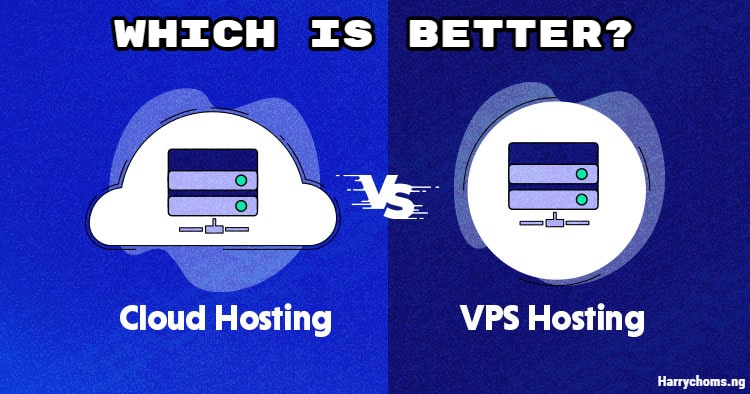Choosing the right hosting plan for your website can be daunting, especially with options like Shared Hosting, VPS, and Cloud Hosting. Each has its own set of features, benefits, and drawbacks. Your decision will depend on performance needs, security requirements, budget, and future growth plans. This article will help you understand these hosting types and guide you in making an informed choice.
Key Takeaways
- Shared Hosting is the most budget-friendly option, ideal for small websites with low traffic.
- VPS Hosting offers better performance and security than Shared Hosting but requires more technical knowledge.
- Cloud Hosting provides excellent scalability and reliability, making it suitable for growing businesses.
- When choosing a hosting plan, consider your website’s performance needs, security requirements, and budget.
- Your hosting choice should also factor in future growth and scalability to ensure long-term success.
Understanding Different Hosting Plans
Choosing the right hosting plan is crucial for your website’s success. Let’s break down the three main types of hosting plans: Shared Hosting, VPS Hosting, and Cloud Hosting.
Key Factors to Consider When Choosing a Hosting Plan
When selecting a hosting plan, several important factors come into play. These factors will help you determine the best fit for your website’s needs and future growth. Here are the key considerations:
Performance Requirements
Reliability and uptime are crucial when choosing a host. Uptime refers to how long a website is accessible to internet users. Ensure the hosting plan can handle your site’s traffic and performance needs.
Security Needs
Security is a top priority. Evaluate the security features offered by each hosting plan. Look for options that provide robust protection against threats and vulnerabilities.
Budget Constraints
Your budget will significantly influence your choice. Compare the costs of different hosting plans and find one that offers the best value for your money without compromising essential features.
Scalability and Flexibility
Consider how easily you can scale your hosting plan as your website grows. A flexible plan will allow you to add resources on-demand, ensuring your site can handle increased traffic and data needs.
Comparing Shared Hosting and VPS Hosting
When deciding between shared hosting and VPS hosting, it’s important to understand the key differences in performance, security, and cost.
Performance Comparison
VPS hosting generally offers better performance than shared hosting. This is because VPS users have dedicated resources, while shared hosting users share resources with others. As a result, VPS hosting provides more storage space and bandwidth, leading to faster load times and a more stable experience.
Security Comparison
Regarding security, VPS hosting is typically more secure than shared hosting. With shared hosting, your site can be affected by issues on other sites sharing the same server. In contrast, VPS hosting uses virtual partitions, which means your site is isolated from others, reducing the risk of security breaches.
Cost Comparison
Shared hosting is more affordable, making it ideal for beginners or those with a limited budget. However, while slightly more expensive, VPS hosting offers better performance and security. It’s a worthwhile investment if you expect high traffic or need more control over your server environment.
Comparing Cloud Hosting and Shared Hosting
When deciding between Cloud Hosting and Shared Hosting, it’s important to understand their key differences and how they impact your website’s performance, security, and cost.
Speed and Performance
Cloud Hosting is generally faster than Shared Hosting. This is because cloud hosting uses multiple virtual servers to pool resources, which can be scaled up on-demand. In contrast, shared hosting relies on a single physical server shared by multiple users, which can slow down your website if other sites on the server experience high traffic.
Security Features
Cloud Hosting offers better security than Shared Hosting. In a shared hosting environment, all users rely on the same security measures. If one site gets compromised, others are at risk, too. Cloud hosting, however, allows for more customized security controls, making it a safer option if you implement the right security practices.
Cost Analysis
Shared Hosting is typically cheaper than Cloud Hosting. Shared hosting is cost-effective because the server’s resources are divided among multiple users. On the other hand, cloud hosting can be more expensive as you pay for the resources you use, but it offers better performance and scalability.
| Feature | Shared Hosting | Cloud Hosting |
|---|---|---|
| Performance | Slower | Faster |
| Security | Basic | Advanced |
| Cost | Lower | Higher |
| Scalability | Limited | High |
Choosing between these two options depends on your specific needs. If you’re looking for a budget-friendly option and don’t require high performance or advanced security, Shared Hosting might be the way to go. However, Cloud Hosting is worth the investment if you need better performance, security, and scalability.
Comparing Cloud Hosting and VPS Hosting
Performance and Speed
When it comes to performance, cloud hosting generally outperforms VPS hosting. Cloud hosting uses a virtual server network, allowing for better resource allocation and faster load times. On the other hand, VPS hosting relies on a single physical server partitioned into multiple virtual environments. While VPS can offer good performance, it may not match the speed and flexibility of cloud hosting, especially during high-traffic periods.
Security Measures
Security is a crucial factor for any hosting plan. Cloud hosting often comes with built-in security features provided by the hosting company. These can include firewalls, DDoS protection, and regular security updates. However, the distributed nature of cloud hosting means that if one server is compromised, your site can be quickly moved to another. VPS hosting, while also secure, requires more hands-on management. You can implement your security measures but also need the technical know-how to do so effectively.
Cost and Scalability
Cost is another important consideration. Cloud hosting is typically more expensive than VPS hosting but offers greater scalability. You can easily add or remove resources as needed, which makes it ideal for businesses with fluctuating traffic. VPS hosting, while generally cheaper, offers less flexibility. You get a fixed amount of resources, and scaling up often requires migrating to a new server plan.
| Feature | Cloud Hosting | VPS Hosting |
|---|---|---|
| Performance | High | Moderate |
| Security | High | Moderate |
| Cost | Higher | Lower |
| Scalability | High | Moderate |
In summary, VPS hosting might be the right choice if you have a predictable workload and need dedicated resources at a lower cost. However, cloud hosting is likely the better option if you need high performance, robust security, and the ability to scale easily.
Choosing the Right Hosting Plan for Your Business
Assessing Your Business Needs
When picking a hosting plan, list your non-negotiables and wish list items. Your specific goals will guide your choice. For instance, a dedicated server might be best if security is your top concern. On the other hand, if you need scalability, a VPS or cloud hosting could be more suitable.
Evaluating Technical Expertise
Consider your team’s technical skills. Shared hosting is beginner-friendly, while VPS and cloud hosting may require more know-how. Opting for fully managed hosting can also overcome many expertise barriers.
Planning for Future Growth
Think about your business’s growth potential. A VPS offers scalability for moderate traffic, but a dedicated server can handle substantial resource needs. Cloud hosting stands out for its adaptability, making it ideal for rapidly growing businesses.
Frequently Asked Questions
What is shared hosting?
Shared hosting is when multiple websites are hosted on a single server. It’s a budget-friendly option, but resources are shared, which can slow down your site during high-traffic periods.
What is VPS hosting?
VPS stands for Virtual Private Server. It divides a physical server into virtual ones, giving you more dedicated resources and better performance than shared hosting.
What is cloud hosting?
Cloud hosting uses multiple virtual servers to host websites. It’s highly scalable and reliable, as resources can be adjusted based on demand.
Which hosting is best for beginners?
Shared hosting is usually best for beginners due to its low cost and ease of use. It’s ideal for small websites or blogs with low traffic.
How do I choose the right hosting plan?
Consider your website’s performance needs, security requirements, budget, and growth potential. Assess these factors to determine which hosting plan is best for you.
Is cloud hosting more expensive than shared hosting?
Yes, cloud hosting is generally more expensive than shared hosting. However, it offers better performance, scalability, and reliability.







Leave a Reply